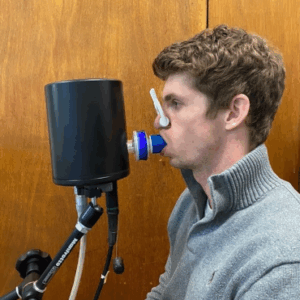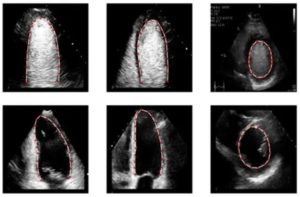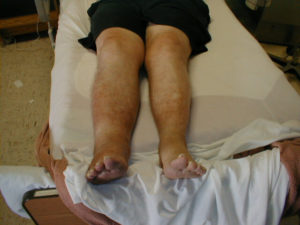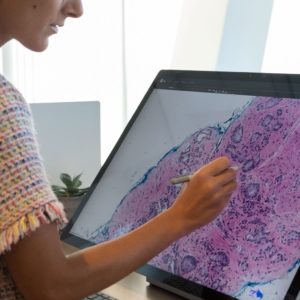Oxford Trauma and Emergency Care at the Nuffield Department of Orthopaedics, Rheumatology and Musculoskeletal Sciences (NDORMS), along with the Critical Care Research Team at the Nuffield Department of Clinical Neurosciences (NDCN) have formally become a new institute within the University of ... READ MORE
News for Digital Health from Hospital to Home
Oxford team develops new national course for all UK surgical trainees
A new national online surgical research course designed to equip every surgical trainee in the UK with the skills to critically engage with, and contribute to, surgical research has been developed in Oxford. The National Online Teaching Programme (NOTP) Surgical Research Course provides core ... READ MORE
Oxford researchers pioneer new breathing test to detect lung disease earlier
A new project led by the University of Oxford aims to develop a novel breathing test that could detect asthma and COPD earlier, more accurately, and closer to home, reducing pressure on the NHS and improving outcomes for patients. This work is included in a portfolio of research funded by the ... READ MORE
Levelling the medical devices playing field for all pregnant women
How can bias in the medical devices used during pregnancy and the neonatal period affect health outcomes, especially for minority ethnic and socio-economically disadvantaged groups? An Oxford University project, supported by the NIHR Oxford Biomedical Research Centre (BRC), is aiming to use the ... READ MORE
Home-based heart rhythm screening improves diagnosis of common heart condition
A wearable electrocardiogram (ECG) patch increases diagnosis of a common heart rhythm disorder, according to a study led by researchers at Oxford Population Health. The results of the Active Monitoring for Atrial Fibrillation (AMALFI) trial are published in JAMA (The Journal of the American Medical ... READ MORE
New Maternity Early Warning Score to be implemented across the NHS
Researchers in Oxford have developed a new maternity early warning score that is derived from patient data. The new system, which is being rolled out across the English NHS, will help healthcare providers identify and respond to signs of deterioration in pregnant women. Maternity Early Warning ... READ MORE
Researchers develop easy-to-deploy federated learning system that safeguards patient data
Researchers in Oxford have developed a new, easy-to-use technique for hospitals to contribute to the development of artificial intelligence (AI) models, without patient data leaving the hospital’s premises. The technique, which builds on recent advances in decentralised machine learning, uses ... READ MORE
Research profile: Clinical nurses helping to shape our medical knowledge
Yuhan Zhang is an Advanced Nurse Practitioner in Oxford University Hospitals’ Ambulatory Outreach Team. She is also in the second year of a nursing doctorate at Oxford Brookes University, for which she is getting support from the NIHR Oxford Biomedical Research Centre (BRC). Yuhan works in an ... READ MORE
No benefit found in switching to citrate anticoagulation for ICU kidney injury treatment
New research has found no added benefit of using citrate-based drugs in the treatment of acute kidney disease in intensive care, when compared to the anticoagulation drug heparin, despite their extra cost. People with acute kidney injury (when the kidneys stop working correctly) may need a ... READ MORE
One in eight people have undiagnosed nighttime hypertension
Around 15 percent of people aged between 40 and 75 may have a form of undiagnosed high blood pressure (hypertension) that occurs only at nighttime. Because they do not know about this, and are therefore not being treated for it, they are at a higher risk of cardiovascular disease such as ... READ MORE
OUH nurse researcher gets award to further study
A Clinical Academic Nurse Researcher at Oxford University Hospitals (OUH) has been given an award by the British Federation of Women Graduates (BFWG) to continue her research exploring how to improve the escalation of care for patients whose condition deteriorates in the hospital setting. Jody ... READ MORE
Doctors making AI-assisted decisions more accurate and confident in decision-making
New research has shown that doctors who use an artificial intelligence (AI) algorithm to assess echocardiograms are more accurate and more confident in their decision making. The study, published in the journal JACC Cardiovascular Imaging, is the first to show that an algorithm can ... READ MORE
QCOVID study identifies vaccinated groups at highest risk hospitalisation and death
Researchers from the University of Oxford have identified which vaccinated people are at greatest risk from severe Covid-19 leading to hospitalisation or death, from 14 days after the second dose of vaccination, when substantial immunity should be expected. The research used the QCovid tool, ... READ MORE
Researchers develop algorithm to diagnose deep vein thrombosis
Researchers are developing an artificial intelligence (AI) algorithm to diagnose deep vein thrombosis (DVT) more quickly and as effectively as traditional radiologist-interpreted diagnostic scans, potentially cutting down long patient waiting lists and avoiding patients unnecessarily receiving drugs ... READ MORE
BRC-supported study receives Best Research Paper Award
A leading cardiology journal has named an academic paper written by Oxford BRC-supported researchers as its best research paper of 2020. The paper – which found that two common heart medication do not increase the risk of COVID-19 hospitalisation – was named by the BMJ Heart journal as the ... READ MORE
Oxford wins government funding to evaluate prostate cancer detection system
A prostate cancer detection software system to help pathologists quickly identify suspicious areas of tissue, developed by the digital diagnostic company Paige, will be investigated in a multicentre clinical study led by the University of Oxford as part of a successful NHSX Artificial Intelligence ... READ MORE
Study challenges idea of clinically significant mid-pregnancy drop in blood pressure
An international study involving NIHR Oxford BRC researchers has shown where normal blood pressure in pregnancy should be across the world and when clinicians should react because it is abnormal. The study’s findings, published in PLOS Medicine, provide international, gestational age-specific ... READ MORE
Oxford academics named NIHR Senior Investigators
Four academics supported by the NIHR Oxford Biomedical Research Centre have been awarded a prestigious national award. The University of Oxford professors have been named National Institute of Health Research (NIHR) Senior Investigators in recognition of being “among the most prominent and ... READ MORE
Machine learning system developed to identify deteriorating patients in hospital
Researchers in Oxford have developed a machine learning algorithm that could significantly improve clinicians’ ability to identify hospitalised patients whose condition is deteriorating to the extent that they need intensive care. The HAVEN system was developed as part of a collaboration ... READ MORE
Using AI to improve the quality of endoscopy videos
A multidisciplinary team of researchers has developed a deep-learning framework for improving endoscopy to aid the detection of cancer and other gastrointestinal diseases. Cancers detected at an earlier stage have a much higher chance of being treated successfully. The main method for ... READ MORE


















